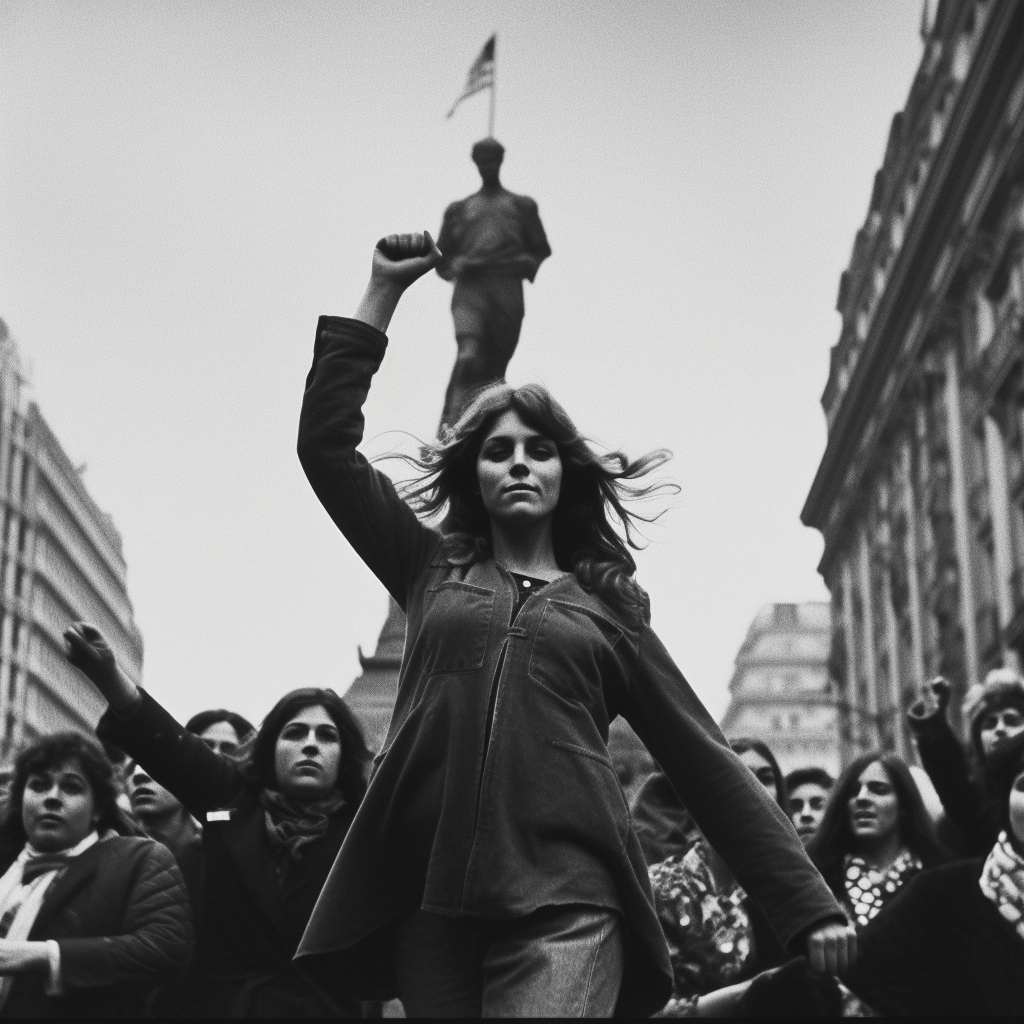Science
Hidden in Plain Sight: Are “Planets” Actually Ancient Relics of the Big Bang?
27 February 2026

For centuries, countless attempts have been made to fix and refine the idea of freedom. Initially associated with consciousness, it became synonymous with free will. Even Aristotle, by denying slaves their freedom, condemned them to objectification within the Greek polis. This fact illustrates freedom’s potent political nature as a concept, shaping our identity and influencing our vision of the future.
The concept of freedom has played a pivotal role in various historical movements, serving as a rallying cry for revolutionaries, civil rights activists, suffragettes, and progressive populists. It served as the guiding principle for revolutionaries who, in the eighteenth century, toppled authoritarian kings and slaveholders. In the nineteenth and twentieth centuries, civil rights activists and suffragettes expanded the meaning of democracy based on the concept of freedom. From this same ideological foundation, progressive populist movements emerged, seeking to end the exploitation of workers through political action in the early twentieth century.
On the other hand, the history of the idea of freedom includes conservative or liberal conceptions of freedom. In this approach, freedom is best realized through decisions and institutions that limit as much as possible the government’s influence on citizens’ lives. According to Annelien de Dijn in Freedom: An Unruly History (2020), this conservative understanding of freedom has long been used to defend elites’ interests. In this perspective, true freedom doesn’t involve collective control over the government but private enjoyment of one’s life and possessions. Implementing freedom has little to do with making the government closer and more accountable to the people. Conservatives emphasize that a democratically elected majority (commoners) poses a similar threat to that of medieval authoritarian rulers.
A deeper examination of the idea of freedom’s evolution helps in understanding why the term “freedom”, for different people, encompasses entirely different meanings. When conservative and liberal politicians speak of respecting freedom, their interpretations often diverge from those of social activists, union members, and civil rights advocates.
Read also:
During the Cold War rivalry between the US and the USSR, numerous intellectuals fell prey to an atmosphere of paranoia and conspiracy. Among them was Isaiah Berlin, who openly expressed his anti-Marxist fears and distrust of state institutions. Berlin’s views represent the culmination of the conservative path to reclaiming the idea of freedom, which traces back to the late nineteenth century: the heyday of laissez-faire thought (conservative-liberal thought), advocating for limiting the state’s role to safeguarding fundamental principles of economic and individual freedom.
In 1969, Berlin presented the paper ”Two Concepts of Liberty” at the University of Oxford, in which he analyzed the notion of freedom in two distinct senses: negative “freedom from” and positive “freedom to.” Berlin’s quest aimed to uncover the origins of the concept of freedom and expose potential dangers inherent in the idea of positive freedom, hence his focus on negative freedom.
According to Berlin, freedom can only be discussed in the context of politics. It wasn’t some gift bestowed gift during an act of creation; instead, it emerged alongside human intellectual development and the politicization of public life. Thus, negative freedom inquires about the extent to which entities’ power can temporarily interfere with our existence. This proposition is closely aligned with the liberal ideal: defending one’s values, choosing inertia in the face of others’ aspirations for freedom, and advocating for the best path to freedom being one that remains free from obstruction.
Berlin took a completely different path than, for example, Erich Fromm, who equated freedom with activity (positive freedom). For Berlin, even the act of decision-making could be called freedom. Shifting the emphasis to the act of decision-making is illustrated by the metaphor of open doors through which an individual can but is not compelled to enter. Everyone has their own intellectual potential and material possibilities in making use of freedom. (Yet what does freedom of speech and custom bring without conditions to realize it, for instance, the lack of shelter or food?)
To some extent, Berlin reveals the conflict between negative freedom and democracy. The area of control is essential, not its source: “A man may enjoy larger negative freedom under an indifferent or ineffective despotism than in a rigorous but intolerant egalitarian democracy.” To confirm this argument, he looks to ancient times, when collectivism and ecstatic enthusiasm for democracy were ubiquitous.
However, that notion of freedom met resistance in nineteenth-century Europe during rapid industrialization and increased internal migration, as the number of industrial working-class people increased dramatically, which gave them greater political agency. Which fueled growing concerns among elites about the preferred direction of political decisions. They began arguing that “mass democracy” posed a serious threat to freedom, particularly about property rights. European parties of socialist origin sought to adapt the concept of freedom to these changing realities. For instance, in Germany, the Socialist Party became the world’s first major political party to advocate for universal suffrage, including women’s right to vote.
In the nineteenth century, progressive movements didn’t accept the notion that freedom could be realized only through minimal government interference in citizens’ lives. That approach would make it impossible to achieve universal and fundamental rights for workers, from social insurance to sick leave and pensions. Karl Marx, the foremost theorist of capitalism, referred to the conservative-liberal stance on freedom as “the exploitation of the many by the few,” by which economic interests and differing political wills among a handful of elites hindered even the most basic implementation of freedom’s ideals among the lower classes.
A deeper exploration of the concept of freedom’s historical evolution lets us gain better insights into present-day events. Take, for example, the uproar that ensued when in the US the Obama administration announced its decision to reform the healthcare system, with huge numbers of citizens protesting against Obamacare, denouncing it as a grave threat to freedom. At first glance, it can be perplexing to understand how expanding health care, which the majority supports and needs, could be seen as undermining freedom. However, this perspective aligns with the deeply ingrained liberal version of freedom, in which any government intervention aimed at improving citizens’ lives is viewed as a restriction on their freedom.
In the European context, a “digital revolution” is on the horizon, involving a package of EU regulations and new restrictions on digital service entities. These changes will impact internet content moderation and impose limitations on targeted advertising. The goal is to safeguard users’ freedom in their unequal struggle against digital giants and service providers. However, opposing views are already emerging, labelling the Digital Services Act as stifling innovation and as excessive interference by EU politicians in favor of private companies. These opponents’ demands reveal a limited vision of freedom, prioritizing elite interests over the greater good of the majority of citizens.
To conclude, taking a historical perspective on the idea of freedom sheds light on diverse conceptions of freedom today. In political debates, the term “freedom” can hold different meanings for various social and political groups, and Isaiah Berlin’s distinction between negative and positive freedoms exemplifies diverse interpretations. Contemporary disputes and discussions, from those surrounding healthcare reform to digital service regulations, refer to the ongoing debate about the precarious balance between individual freedom and the state’s role. New reforms and regulations provoke battleground clashes between advocates of greater individual freedom and those concerned with social well-being as a whole. Therefore, it remains crucial to engage in thoughtful discussions about freedom: it profoundly shapes our societal identity and influences how we shape our future.
Sources:
Science
27 February 2026



Zmień tryb na ciemny